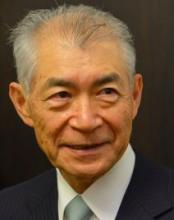Two researchers who made groundbreaking discoveries leading to the development of immune checkpoint therapy have jointly received the 2018 Nobel Prize in Physiology or Medicine.
James P. Allison, PhD, and Tasuku Honjo, MD, PhD, share the prize for their work in showing how strategies for “inhibiting the brakes” on T cells can be used in the treatment of cancer, the Nobel Assembly at Karolinska Institutet, Stockholm, said in a news release.
The discoveries of Dr. Allison and Dr. Honjo represent a landmark in the fight against cancer, according to the Nobel Assembly.
“This new form of immunotherapy unleashes a vigorous, and often durable, immune response directed against essentially any tumor already recognized by the immune system,” members of the Nobel Committee and Assembly said in a simultaneously published manuscript explaining the scientific background behind the discovery.
The “unprecedented” research activity in the immune checkpoint field demonstrates how influential the discoveries of Dr. Allison and Dr. Honjo have been, molecular genetics professor C. I. Edvard Smith, MD, PhD, and coauthors said in the manuscript.
Their findings have “conferred great benefit on mankind” and add a “new pillar” to existing cancer treatments, Dr. Smith and coauthors said in their report.
Dr. Allison was one of several scientists to observe that the cytotoxic T-lymphocyte antigen 4 (CTLA4) protein functions as a brake on T cells, the Nobel Assembly said in the press release. He developed an antibody that could bind to CTLA4 and block its function, and demonstrated its activity in experiments taking place near the end of 1994.
The “spectacular” results showed that, in mice, the antibodies could inhibit the brake and unlock antitumor T-cell activity, according to the release.
Studies of CTLA-4 blockade in humans from several research groups yielded promising results, and in 2010, a major breakthrough came, according to the Nobel Assembly, when it was reported that the CTLA4 blocker ipilimumab improved survival in patients with metastatic melanoma.
Dr. Honjo discovered the programmed cell death protein (PD-1) in 1992, a few years before Dr. Allison’s discovery, and explored its function in experiments carried out over many years at his laboratory at Kyoto University.
Dr. Honjo’s experiments showed that PD-1 functioned as a T-cell brake, but by a different mechanism than CTLA4, paving the way for studying PD-1 as a target of cancer treatment.
That led to a considerable amount of clinical development, including a key 2012 study showing that patients treated with the anti-PD-1 antibody nivolumab led to long-term remissions and possible cures in some patients, the assembly said in their press release.
Scientists have attempted to harness the immune system in the fight against cancer for more than 100 years, according to the assembly. “Until the seminal discoveries by the two laureates, progress into clinical development was modest. Checkpoint therapy has now revolutionized cancer treatment and has fundamentally changed the way we view how cancer can be managed.”



